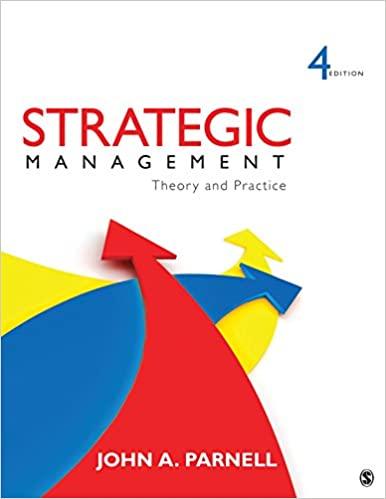Phil Knight and Bill Bowerman met at the University of Oregon in 1957. Five years later, they
Question:
Phil Knight and Bill Bowerman met at the University of Oregon in 1957. Five years later, they formed Blue Ribbon Sports to manufacture high-quality running shoes. In 1963, they began selling Tiger shoes—manufactured by Onitsuka Tiger in Japan—out of cars at track meets in the United States. The company became Nike in 1972, named for the Greek goddess of victory.
Nike grew rapidly, securing 50% of the U.S. running shoe market by 1979; the company went public in 1980. The shoemaker expanded into other sports with Michael Jordan’s Air Jordan in 1985 and the cross-trainer in 1987. Nike signed Tiger Woods to a $40 million endorsement contract in 1995 and continued its prowess into most major sports. Nike acquired competitor Converse in 2003 and currently competes with shoemakers Adidas, Reebok, and others. The firm continued to expand its product offerings to a variety of sports-related categories, including apparel, clothing bags, two-way radios, and even heart monitors. Nike’s late 1980s advertising slogan “Just Do It” is still widely renowned as highly effective and memorable.
Today, Nike is the number one shoemaker in the world and controls over 20% of the athletic shoe market in the United States. The company designs and markets shoes for basketball, baseball, golf, cheerleading, volleyball, and other sports—in addition to Cole Haan dress and casual shoes and a line of athletic apparel—in about 200 countries. Chairman, CEO, and cofounder Phil Knight still owns controlling shares in the company. Much of Nike’s success may be attributed to its endorsements, including such notables as LeBron James, Kobe Bryant, Michael Jordan, and Roger Federer.
Nike products are distributed through an estimated 23,000 retail sporting goods and shoe stores in the United States and 30,000 abroad. The firm operates about 700 company-owned stores, accounting for about 15% of revenues. The Nike brand accounted for 87% of revenues in 2010. Nike also operates 24 distribution centers worldwide, with approximately half of the company’s revenues coming from outside of the United States. Nike veteran Mark Parker has been CEO since 2006.
Because most of its shoes are manufactured by contractors in low wage companies, Nike has been a constant target of human rights activists citing poor wages and alleging child labor violations and substandard working conditions. Nike has taken steps to improve conditions, but critics continue to charge that more should be done.
Case Challenges
1. How important are Nike’s expensive endorsements to the company’s success?
Are the endorsements really worth the money? Explain.
2. To what extent, if any, is Nike liable for the actions of its manufacturing contractors with regard to employment issues and human rights violations?
3. Do small rivals like China’s Li-Ning pose a serious threat to Nike? Could private label athletic shoes challenge Nike, especially in poor economic times?
Step by Step Answer:






